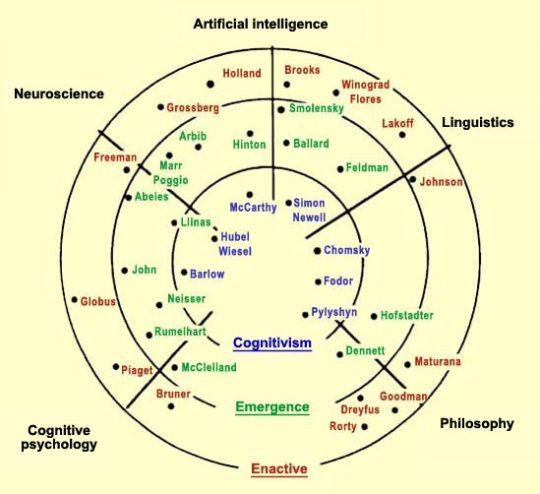#linguistics of emotions
Text
Transcript Episode 75: Love and fury at the linguistics of emotions
This is a transcript for Lingthusiasm episode ‘Love and fury at the linguistics of emotions’. It’s been lightly edited for readability. Listen to the episode here or wherever you get your podcasts. Links to studies mentioned and further reading can be found on the episode show notes page.
[Music]
Lauren: Welcome to Lingthusiasm, a podcast that’s enthusiastic about linguistics! I’m Lauren Gawne.
Gretchen: I’m Gretchen McCulloch. Today, we’re getting enthusiastic about the linguistics of emotions. But first, thank you to everyone who recommended us for our anniversary episode!
Lauren: We’ve enjoyed sharing six years of Lingthusiasm with you. It’s always nice to see you share it with other people who need a little more linguistics in their lives.
Gretchen: Our most recent bonus episode was about using pseudo olde-y time-y English for fun and vibes.
Lauren: Hither thee to patreon.com/lingthusiasm to listen to all our bonus episodes and help keep the show ad-free
[Music]
Gretchen: Lauren, I have a sort of philosophical question. Do you think emotions are things like numbers, like things that sort of exist at some level out in the world, or things that are more like food where what constitutes food is really culturally specific?
Lauren: I’m gonna answer your philosophical question with some linguistic data.
Gretchen: Amazing.
Lauren: There is a really great paper that has looked at how different cultures carve up the emotion space in terms of the words they use for different emotions.
Gretchen: That sounds like a really interesting way of answering that question.
Lauren: This was a project from Joshua Conrad Jackson and a whole team who looked at how different languages group together different emotions into a single word – a process that they call “colexification.”
Gretchen: If we take a non-emotional, more concrete example of this to start, for example, a word like “pueblo” in Spanish could be translated into English with either “people” or “village.” This suggests that these two concepts may be more closely linked in Spanish where “pueblo” can mean both of these things versus in English where you have two words and treat them as more distinct concepts.
Lauren: Or Japanese has “shima” for “community” or “island.” Again, two things that we have as separate words in English put together in the same word in another language.
Gretchen: The inverse can also be the case. There’re things that English puts together as one word that another language might split.
Lauren: Oh my gosh, in terms of emotions, the one that I think feeds a lot of the English romance novel tradition is the fact that the word “love” can mean so many different types of love, which causes all kinds of confusion in romance novels, maybe daily life.
Gretchen: You have romantic love, familial love, things like – so in Spanish, you have “querer,” which is more like love you have for your friends or family, and “amar,” which is more like I’m “in love” with someone. English doesn’t really distinguish between these.
Lauren: Indeed.
Gretchen: I think Ancient Greek distinguishes between “agape” and “philia” and various other types of love. Again, English isn’t distinguishing between these at a lexical level, which isn’t to say that English speakers aren’t aware at some level that there’re multiple kinds of love, just like speakers of other languages can be aware that there are different kinds of other emotions even when there’s one word for them.
Lauren: It’s just what emotions tend to be closely associated with each other because they share a word as a label. In Persian – to move beyond “love” – Persian has a single word that encompasses the concepts of both grief and regret, whereas if you turn to a language like Dargwa, grief is more closely linked with what we would translate as the concept of anxiety. You can see how grief might relate to both regret or anxiety, but these languages have grouped those together in different ways.
Gretchen: That’s a really interesting thing about this study that they’re drawing these maps at the level of a language family showing that certain language families have certain tendencies in terms of which concepts they’re associating with each other. They’ve got a map of Austronesian languages, which are spoken in the South Pacific and Southeast Asia, and they’ve got fear and surprise as linked together on their emotional map.
Lauren: Whereas for the languages of the Nakh-Daghestani group, which is in the area of the Caucasus which runs down from Russia through to Turkey, they have fear linked with anxiety and grief.
Gretchen: Right. Which is a different level of, maybe, positivity when it comes to what you’re associating fear with, whether it’s grief and anxiety or whether it’s surprise. Maybe you have a bit of a different cultural association around fear.
Lauren: One of the things I really appreciate about these maps is that you tend to find that languages will have very similar maps of emotions in this way to other languages that they are related to historically but also other languages that are just in the geographic area, and it makes me feel really positive about the possibility of understanding your neighbour because there’re these tendencies that happen within particular regions.
Gretchen: Aw, that’s really charming. Even if you don’t necessarily speak languages that come from a common ancestor that people seem to converge on emotion words when they’re in contact with people who speak something that’s in their area.
Lauren: But the authors are very clear to point out that even though we see these tendencies, there’s still so much variation between even related languages in how we carve up the emotion space and that each language does things from its own particular perspective.
Gretchen: And like we saw with “love” in English, just because a language uses the same word for two concepts that are distinguishable doesn’t necessarily mean that speakers aren’t distinguishing between them in other ways.
Lauren: Indeed.
Gretchen: Ideally, it seems like it would be really cool if we could do this from a historical perspective as well because if we’re finding languages that are historically related or geographically related have similar emotion words, then it seems like looking through history would be a fun way of looking at that.
Lauren: You would be correct in thinking that is a fun thing to do. But one of the biggest challenges that we have is that, historically, people weren’t really focused on using labels to talk about emotions or to interrogate emotions in written records, which is unfortunately all we have left until we figure out time travel.
Gretchen: Definitely something I’d do with a time machine. You get historic texts with something like a character weeping or wailing or tearing their hair or wailing and gnashing of teeth, but you’re less likely to get something like “felt surprise” or “felt angry” or this sort of detailed psycho-analytic parsing of emotion.
Lauren: Yeah, if we look at historical records, a lot of written records were just, “These people did these things at this time,” and then if it is something about a myth or a story of people, it is very much about the performance of actions. Those actions might be associated with emotions but not a lot of talking about the emotions or the internal states themselves.
Gretchen: It’s interesting to think of how that changes as literary traditions change. You have going from “This character was wailing and crying and tearing their hair out,” to maybe a Shakespearean character giving a soliloquy, to characters in novels or things that have stream-of-consciousness style where it’s actually trying to replicate what’s going on in terms of someone’s emotional state. That’s a fairly recent development in the history of literature.
Lauren: Unfortunately, it means those historical perspectives are still very open questions.
Gretchen: Again, something to put in the linguistics time machine box.
Lauren: It does make you realise just how culturally mediated our experience of emotions are and how we might label them and we might talk about them. That’s something that kids have to learn as they are growing up in the languages and the environments that they are being raised in.
Gretchen: There’s this really fun paper about how kids learn emotion words and develop their emotional expressions, and I think the thing that’s the most fun about this is that it puts into academic words what is probably familiar territory for a lot of people if you’ve met a few kids. Here’s a few quotes from this paper. It says, “By the time language begins, towards the end of the first year, emotional expression is already well-established. Children do not need to learn the names of the emotions in order to tell other people what they are feeling.”
Lauren: So, as a translation, just because kids don’t know the word for “sad” doesn’t mean that they can’t be very, very sad at you by screaming in your face.
Gretchen: [Laughs] Yeah, I think that’s basically what it’s saying.
Lauren: Hm, yeah, that makes sense to me.
Gretchen: “But they do need to learn the language to tell other people what their feelings are about. Language does not replace emotional expression, rather children learn language for expressing and articulating the objects and circumstances of their emotional experiences while they continue to express emotion with displays of positive and negative affective tone.”
Lauren: Kids can laugh and cry.
Gretchen: And throw screaming tantrums on the floor, yeah.
Lauren: And throw absolute meltdowns. But they have to learn to talk about these things as well, which is why so many children’s books spend so much time talking about the emotions and the feelings of the characters because it’s a really great space to practice doing that in.
Gretchen: There’s so many interesting spaces for figuring out what particular emotions are. I think one of the tools that’s also used for adults is an emotion wheel. You have this round circle that has – on all of the different spokes around the wheel in often various fun colours – different names of emotions. They try to categorise them by major emotions, or major emotional categories, and to minor and more refined bits of different emotions.
Lauren: Oh, I’ve definitely seen one of these emotion wheels for sure.
Gretchen: I think therapists use them sometimes or teachers or educators to try to help scaffold people into talking about emotions. But the thing that fascinates me as a linguist is that there are many emotion wheels, and they’re not all the same.
Lauren: Because you would expect that there are some really prototypical emotion categories that we can break down into more complex or nuanced emotions.
Gretchen: Right. But which categories different emotion wheels think of as “prime” categories or “primitive” categories that everything else is a refinement of seems to vary depending on the emotion wheel. I saw one that has “happy” and “sad” and “angry” as your basic emotions, and then another one that has things like “peaceful” and “powerful” and “joyful” as your basic emotions.
Lauren: Oh, wow. They’re very different. I feel like those people are trying to aspire to some kind of abstract synthesis of different emotion types.
Gretchen: Right. It’s kind of like are you starting with the kid emotions that maybe you learn really early or are you starting with an abstract synthesis. A lot of them end up in fairly similar places. Both of these wheels have “proud,” but one of them puts “proud” under “powerful,” and the other one “proud” under “happy.” I mean, you could also think of “proud” in some contexts as a negative emotion, so putting it under a particular overarching category is making a theoretical statement.
Lauren: The thing I find interesting about these emotion wheels is that they often try very hard to have half the wheel be positive emotions and half the wheel be negative emotions. I was thinking about this, and there is one study I’ve tracked down that’s looked at English and Spanish in terms of how many positive and negative emotion words there are. They find for both languages that there are negative skews in terms of the number of words that we have and the number of words we use to talk about negative emotions, which makes sense because if things are going fine, it’s fine, and if things aren’t going fine, you need a lot more words to explain that.
Gretchen: I think there’s a Tolstoy quote about how every happy family is the same and every unhappy family is different in various different ways.
Lauren: Or maybe it’s just that they have more words to explain their unhappiness.
Gretchen: But maybe you need words to talk about exactly the precise degrees to which you are unhappy. Also, like with the pride thing, I don’t know if all emotions can be strictly characterised between being positive or negative or being good or bad. Our negative emotions are still there to tell us something. An emotion like “Schadenfreude,” which is pleasure in someone else’s misfortune, is that a positive emotion or a negative emotion? Emotions can also be complex.
Lauren: I think that’s one of the important things to understand about emotions is that it’s not just kids that have to learn labels for emotions. Coming to understand them and coming to find words to express them is really a bit of a lifespan project. I think about how, as I’m getting older, I’m coming to understand really nuanced and complex emotions like one that I can only describe as “happy crying,” which is a thing that, as I get older, I find myself doing more. I’m like, I’m very confused because this is not an emotion I learnt in a kid’s book or I learnt early on or I have a go-to label for but is definitely part of my life as I find myself in more situations where I’m, like, happy but weirdly crying about it.
Gretchen: I feel like as a kid I would sometimes see adults doing happy crying and being like, “What’s going on here?” And now I’m like, “Oh, I know what this is.” The same thing for emotions like nostalgia. The depths of nostalgia that I can arrive at continue to grow as I have more things to be nostalgic about.
Lauren: Indeed. That one is gonna be a real lifespan project, isn’t it.
Gretchen: I think it’s also good to point out that there are different routes and paths and paces to the process of figuring out emotions and how to label them. I recently learned the word “alexithymia,” which is a condition where you have difficulty connecting with and labelling your emotions. I think it can be validating to know that there are words for even the very process of finding it difficult to put words to your emotions.
Lauren: “Alexithymia” is a new word for me, but I feel like it’s something that could help people make a lot of sense of the way they experience the world and process emotions.
Gretchen: There’s also some interesting research on bilingual people and their experience of emotion terms.
Lauren: I guess we talked earlier about how different languages carve up the emotion space, and so having access to emotion vocabularies in different languages that do different things might help with different perspectives on that.
Gretchen: Another thing that seems to really affect people is the order and context in which they learned different emotional words in different languages. It often seems to happen that when people learned a language young or with family, they have stronger emotional associations with that language’s emotion words, like I think with swear words where if you’ve been exposed to that swear word in its context a lot, you have a stronger emotional reaction to it. This can be either helpful in the context where, if you’re trying to be extra affectionate with someone, like say you’re having kids, and you wanna talk about particularly affectionate words, you wanna do that in a language that feels very intimate and affectionate for you, but then also sometimes it can be helpful for people to use that second or third language and have more emotional distance from a concept and make it easier to talk about without getting overwhelmed by emotions.
Lauren: There’re absolutely advantages in some contexts to feeling a little bit less of an emotional punch when you’re using these big emotion words or having big conversations about emotions and feelings. I can see how it’s both a useful thing sometimes and a bit of a, like, the distance is unhelpful sometimes.
Gretchen: There’s one quote from somebody who says, “I have a preference for French. When my children were born, I wanted to use English just so they would be accustomed to it from an early age, but I just couldn’t. It sounded untrue.” That’s the sort of affectionate side.
Lauren: Then the flip side is a Russian speaker who was reflecting on the fact that saying, “I love you,” in English is somewhat easier than when they were trying to say, “I love you,” in Russian. I’m just like, “Oof.” As someone for whom English is the most easy-to-access emotion language for me, the idea that English is an easy language to say that in does not work in my model of emotions at all. Which language you have more emotional access to, I guess, really depends on your upbringing.
Gretchen: I think that’s something that is difficult when it comes to trying to teach computers about how to understand emotions.
Lauren: Yes, given that they, as far as we can tell so far, have access to no actual emotions regardless of which language they start with.
Gretchen: You give them a whole bunch of data, give them a whole bunch of emotion words, but then if they’re trying to understand something that requires a bit more context like sarcasm or being hyper-negative for emphasis, they fall apart.
Lauren: This weird thing we do with language as humans is play with it, and part of playing with it sometimes is – we talked about some things are ambiguously positive or negative depending on context, but we can actually use highly negative language to be positive because we’re trying to get people’s attention. For example, I could say something like, “That puppy is disgustingly cute. I hate it.”
Gretchen: I know not just from the context of “puppy” and “cute” but also from the way you’re saying it, your tone of voice, your context, that you’re actually very positive about this puppy.
Lauren: “It’s so cute!”
Gretchen: “I can’t handle it!” This gets to another facet of talking about emotion which is how the emotions come out from our tone of voice not just from the words we label them from.
Lauren: It’s not just what we say, it’s how we say it.
Gretchen: There are some acoustic studies about the effect of smiling on various physical parts of the sound signal.
Lauren: Ah, okay, because I feel like there’s always this advice to smile to sound upbeat, and I just thought that was someone trying to be annoying. But you’re saying there are actually observable features that happen if we smile while we’re talking.
Gretchen: Well, why don’t we try something. If I say the same sentence twice – and I’ll try to say it as similar as possible – but one time I’m smiling, and the other time I’m not, and you can see if you can guess which one I’m smiling on.
Lauren: Excellent. Very handy this is a podcast, and we can’t see what you’re doing with your mouth.
Gretchen: Exactly. Number One: “This is an example sentence.” Number Two: “This is an example sentence.”
Lauren: Oh my gosh, you were smiling on the second one.
Gretchen: I was.
Lauren: There was almost nothing else that was different. It was exactly the same intonation.
Gretchen: I was really trying so hard.
Lauren: You were a very good experimental sentence-producer, but there was something different about that second sentence.
Gretchen: Yeah, and that is that smiling seems to increase the pitch a little bit – for all speakers – and then for some speakers, it also makes things a little bit louder or a little bit more extremes between the highest and lowest pitch, and that they seem to be heard as smiling because smiling does change the shape of you mouth, and it changes the sounds as it comes out of it.
Lauren: I guess when people say you should smile to sound like you’re more enthusiastic, I should actually take that advice. It’s pretty good advice. It checks out.
Gretchen: I guess so. Do you wanna hear what some other acoustic correlates of emotions are?
Lauren: Sure. Let’s start with “anger” to go for something very different.
Gretchen: Right. First of all, there are two kinds of anger. You have cold anger and hot anger.
Lauren: So, icy rage and spicy rage.
Gretchen: Oh, I think so. Cold anger, that’s a very stern anger, is produced with a lower pitch, higher intensity, and more energy, whereas hot anger, which is a blowing-your-top-off, losing-your-temper-type anger –
Lauren: That’s our spicy rage.
Gretchen: That’s our spicy rage – is produced with a higher, more varied pitch, rather than being a low grumble is a higher, more varied pitch, and even greater energy than cold anger.
Lauren: I never really thought about the fact that anger – again, thinking about what emotions we pack into a single word, I never thought about the fact we have two very different things that we label as “anger” but are expressed in our tone of voice very differently.
Gretchen: Even though we’re calling them both “anger,” we have this sense of what these two varieties are and how to produce them differently. Then, fear is produced with a higher pitch, less variation in terms of up and down pitch variation, and lower energy, and a faster speech rate, which makes sense to me because you sort of [higher pitch] “Uhhhhh fear.”
Lauren: Yeah. I like that it’s a higher pitch like our hot anger, but it has lower energy. There’re all these different parameters that we are manipulating when we show emotion in our voices.
Gretchen: Then sadness is also produced with a higher pitch, less intensity, but more energy and more pauses of longer duration. But this seems to be English specific because there’s also a Japanese study where speakers, especially female speakers, use a lower pitch for sadness. There may be also culturally specific aspects to some of these acoustic correlates of emotions.
Lauren: Just like we learn different words and different associations for those words across different cultures we also learn to express our emotions in different ways.
Gretchen: And in ways that are legible to other people in our culture so that they recognise, yeah, this is spicy rage, or this is icy rage, or this is fear, or sadness, or something like that.
Lauren: I assume even with the cultural differences, for spoken languages, we’re still all operating with the one vocal tract, and signed languages, we’re still all operating with the one body that’s gonna respond to emotions in particular ways. I assume even though we’ve been mostly talking about English for those previous emotions, there are some patterns that occur across languages.
Gretchen: Yeah. There’s another study that compared how people identify emotions in three languages – English, German, and Arabic – and found that speakers of the other languages were still pretty good at identifying which emotion was being expressed in a phrase in a language they didn’t understand. There’re certainly some levels of cultural comparison here for sure.
Lauren: I feel like I can watch a film in a language I don’t speak and know if someone is in a fit of spicy rage. That checks out for me.
Gretchen: Yeah, I think so. The study that I find both very validating and very disturbing about how emotional tone of voice affects people is also based on how people perceive particular tones.
Lauren: Okay, so we’ve talked about how there’s this tendency to produce emotional tone of voice in a particular way, but that has an effect on the people that we are speaking to or that hear that use of speech.
Gretchen: Right. This study was a very classic psych study paradigm, you know, you come into a lab, you have a computer screen, you have a voice telling you to press a particular button, one of two buttons, and the commands to press a particular button were said with either neutral prosody, happy prosody, or angry prosody.
Lauren: Oh, no. No. that sounds very stressful.
Gretchen: The angry voice tells you to press the red button, and you’re like, “Oh no!”
Lauren: I feel very stressed thinking about this research paradigm.
Gretchen: And then sometimes they would just vary up whether they give you the happy voice or the angry voice or the neutral voice sort of randomly, and then sometimes they’d give you the angry voice after you’d messed up pressing the previous button.
Lauren: Oh no, this is very stressful.
Gretchen: This is so stressful. Like, you’ve brought your participants into the lab to yell at them. They found that, sure enough, people do have slower responses to the angry prosody, and even slower responses when the angry prosody was given after they had previously messed up, and they actually thought the computer was kind of angry at them.
Lauren: People really are affected by tone of voice.
Gretchen: Right. On the one hand, I find this study very stressful because, yeah, you’re gonna bring your participants into the lab to yell at them. I hope they debriefed them and gave them a cookie afterwards or something.
Lauren: The thing that reassures me about university research is that it has to be cleared by a committee that look at the ethical implications of it. Doing this kind of work does require you to make sure your participants are okay afterwards.
Gretchen: That’s really reassuring, actually. But also, I feel kind of validated by this study because I think you do have an emotional reaction when someone says something to you in angry tone of voice that it’s nice to know that other people are also feeling that, and you can measure it this very psychologically validated way. It’s not just this feeling in the pit of your stomach, or this tightness in your chest isn’t just “Oh, this is me, and I shouldn’t be having this reaction to this emotional tone of voice.” It’s like, no, this is a normal human way to feel when someone is having an emotion at you is to feel an emotion in response – and for that to affect your ability to respond to things.
Lauren: I guess, also, a good reminder that when you are in a fit of spicy rage that you’re having an effect on the people who are around you.
Gretchen: Absolutely. That’s one of the things that I find really validating about talking about emotions from a linguistic perspective. The fact that there are all these words for emotions reminds us that we’re not alone, that other people have had and labelled and shared feelings like ours before. Sometimes, it’s finding the right life experience or the right labels for our feelings, and sometimes just thinking about the linguistics of emotion words reminds us that we don’t have to be alone with our feelings. We can feel more connected with other people by talking about them whether that’s in a private journal or diary, whether that’s reading about other people’s emotions or experiencing them through media like movies and music, or simply by thinking about the words that we use and how they connect us with other people who’ve also used them.
[Music]
Gretchen: For more Lingthusiasm and links to all the things mentioned in this episode, go to lingthusiasm.com. You can listen to us on Apple Podcasts, Google Podcasts, Spotify, SoundCloud, YouTube, or wherever else you get your podcasts. You can follow @lingthusiasm on Twitter, Facebook, Instagram, and Tumblr. You can get IPA scarves, “Not Judging Your Grammar, Just Acquiring It” baby outfits, and other Lingthusiasm merch at lingthusiasm.com/merch. I can be found as @GretchenAMcC on Twitter, my blog is AllThingsLinguistic.com, and my book about internet language is called Because Internet.
Lauren: I tweet and blog as Superlinguo. Have you listened to all the Lingthusiasm episodes, and you wish there were more? You can get access to an extra Lingthusiasm episode to listen to every month plus our entire archive of bonus episodes to listen to right now at patreon.com/lingthusiasm or follow the links from our website. Have you gotten really into linguistics, and you wish you had more people to talk with about it? Patrons can also get access to our Discord chatroom to talk with other linguistics fans. Plus, all our patrons help keep the show ad-free. Recent bonus topics include a chat with Liz McCullough about linguistics and SciComm, a world tour of children learning languages, and playful ye olde-y English. If you can’t afford to pledge, that’s okay, too. We also really appreciate it if you can recommend Lingthusiasm to anyone in your life who’s curious about language.
Gretchen: Lingthusiasm is created and produced by Gretchen McCulloch and Lauren Gawne. Our Senior Producer is Claire Gawne, our Editorial Producer is Sarah Dopierala, and our Production Assistant is Martha Tsutsui-Billins. Our music is “Ancient City” by The Triangles.
Lauren: Stay lingthusiastic!
[Music]

This work is licensed under a Creative Commons Attribution-NonCommercial-ShareAlike 4.0 International License.
#language#linguistics#lingthusiasm#podcasts#episode 75#transcripts#emotions#linguistics of emotions#how to talk about feelings#emotion wheel#alexithymia#emotional expression#feelings
26 notes
·
View notes
Text
Other Words to Use (Emotions)
Carefully chosen words have the power to bring a person or story to life and impact the readers' impression. If you’re like most people, though, you often use the same words when writing about emotions. Here are some commonly used words to describe emotions and feelings as well as many alternatives that may help your readers better understand what you're trying to convey.
Happy
HIGH excited, thrilled, ecstatic, elated, intoxicated, captivated, euphoric, joyous, jubilant, overjoyed
MODERATE cheerful, upbeat, optimistic, enthusiastic, lively, gleeful, joyful, peppy, delighted, tickled, hopeful
LOW merry, light, jolly, up, glad, pleased, blissful, chipper, content, perky, playful
Sad
HIGH grieved, crushed, gloomy, hopeless, heartbroken, devastated, despairing, distraught, heavy-hearted, miserable
MODERATE dejected, dismayed, hurt, hurting, disillusioned, downcast, forlorn, glum, cheerless, melancholy
LOW down, disappointed, blue, discouraged, low, somber, sorry, unhappy
Angry
HIGH furious, raging, irate, hateful, incensed, hostile, outraged, indignant, exasperated
MODERATE aggravated, irritated, irked, upset, annoyed, offended, sulky, ticked off, fuming, sullen, provoked
LOW perturbed, hassled, bothered, fuss, fret, displeased, peeved
Scared
HIGH: terrified, overwhelmed, panicked, petrified, alarmed, fearful
MODERATE: worried, tense, dread, shaken, anxious, afraid, panicky, panicked
LOW: startled, surprised, uneasy, edgy, apprehensive, hesitant, uncomfortable
#emotions#writing reference#writeblr#spilled ink#writing prompt#poets on tumblr#poetry#writers on tumblr#literature#words#linguistics#studyblr#langblr#dark academia#light academia#lit#writing resources
806 notes
·
View notes
Text

ถ้ามีรุ้งด้วยก็คงจะดี /thaa mee rung duuay gaaw khohng ja dee/
รุ้ง /rung/ is a rainbow, the entire spectrum of light, all of the colors.
Rung is the name of Mork's sister. So what he says here, could also be read as:
"If Rung was here too, that would be nice."
You know how rainbows are formed? Light refracts in airborne water droplets. And you know what is made of such water droplets and can thus create a rainbow? หมอก /maawk/ - mist, fog, Mork.

It's not just Day who realized that he can still experience the world in all its beauty. I think Mork also realized that what matters is in your heart. Because he'll always carry Rung with him, wherever he goes.
Rung is all around them.

My usual disclaimer applies: not a native Thai speaker, still learning 🙏
#last twilight#last twilight meta#thai bl#local woman harps on about linguistics#i'm in my feels y'all#the amount of tears i shed ;;#i have a bunch of language notes but i'm too emotional to work on that today#local woman harps on about last twilight
740 notes
·
View notes
Text
The idea that shrimp see colors we don't has been debunked--they have more types of color receptors, but they can't combine them nearly as well as we can so they actually see fewer colors.
But damn did that misconception lead to a useful way to describe things that are otherwise impossible to describe.
#shrimp colors#shrimp emotions#linguistics#how animals work#that time travel podcast#five dimensional chess
495 notes
·
View notes
Text
Chants of Sennaar MC and little friend are literally family. To me personally.
#idk how niche this is and honestly idc that's my emotional support gender ambiguous linguistics man#and emotional support gender ambiguous child#ADORED this game btw. must play for language enjoyers#chants of sennaar#CoSen#?
206 notes
·
View notes
Text
Saw someone in youtube comments say something like "on the map Czechia and Slovakia are two separate countries, but Czechoslovakia is in our hearts" and yeah. yeah that's what it's like
#before butthurt foreigners come in my ask box no this is not about nostalgia for the now obsolete country name#and no you still can't call us czechoslovakia#this is about the strong sense of kinship between czechs and slovaks stemming from deeply intertwined history and culture and language#we (at least most people) very much want our countries to remain separate#but it's this feeling of undeniable connection#where both countries feel like home and meeting a slovak online is just like meeting another czech and vice versa#czechoslovakia not as a country but czechoslovakia as a feeling. czechoslovakia as a shared history. czechoslovakia as a culture#czechoslovakia as a mutual understanding on more levels than just linguistic#mist getting emotional on main at half past midnight#čumblr#czech#slovak
186 notes
·
View notes
Text
this week, in the spanish singing program operación triunfo, they sung escriurem, a song by catalan singer miki núñez - more specifically, they sung the version of the song he did with basque singer izaro, in catalan and euskera.
in operación triunfo it was sung by chiara, who is from menorca and thus speaks the menorquín dialect, very different from miki's barcelonese one (i don't speak catalan and still noticed the changes from the original to chiara's one); and martin, from the metropolitan area of bilbo (specifically getxo). for what i've seen people comment, his town doesn't really have many basque speakers, and his dialect is the one they learn at school, the most neutral one. izaro is from gipuzkoa (more specifically from mallabia) so i imagine they have different dialects as well, i haven't listened enough to the bilingual version to really get the differences but i'm sure a more trained ear will be able to do so!
anyways, here's them performing the song at the academy, unfortunately the gala performances are only uploaded to prime video:
youtube
#linguistics#catalan#basque#euskera#languages#i know there's a lot of lamguage nerds (like myself) here so i thought you would like this!#i've listened to escriurem a lot but not really the version with izaro. i should do it more#izaro is my favourite basque singer btw she's sooo#they were good at the gala as well btw!!! and miki appeared after the performance crying and everything#cause escriurem is like the unofficial anthem of the program#miki was also in OT and escriurem is about all the contestants in his edition and how close they are and the experience#and now that it has been sung in another edition it has turned into something bigger#even the presenter who participated in the first edition of the contest cried and dedicated the song to her people - more importantly to on#of them who passed away recently#very very emotional stuff#Youtube
25 notes
·
View notes
Text
Ti Platonism

Search for Universal Axioms
While it might be said that all types seek truth of a sort, to the Ti user the quest for truth has a very specific meaning. He is not satisfied with the acquisition of information and indeed he generally avoids information, but is instead drawn to eternally narrow his search down to what he believes is the core of a thing - beyond the senses and beyond the confines of space or time. He'll aim to get rid of as much as is unnecessary, until only the essence remains. To him, truth means landing upon some elusive and singular convergent principle or nexus which gives formulation, symmetry and justification to everything else in the conscious universe. The Ti user, it may be said, is on a quest for a philosopher's stone. He will dig for it in all manner of philosophy and theories of the mind and this can cause them to become obsessive in their pursuits, and abandon all sense of context in their research. They may forget that they are not making tangible progress towards any scientific or objective aim, but instead are diving headlong into a conceptual challenge. Indeed it is an epistemological challenge with the bait of the One Truth at the end of it which they chase. And whether this truth is ever known by the Ti user is irrelevant to the visceral belief in its existence. Even if he has come to doubt all truth and has entered an existential dead end in his pursuit, so that he only knows that he knows almost nothing, he was lead into this territory by an inarticulated but deep rooted suspicion that something is there just waiting to be crystallized into knowledge.

Reductionism
For the Ti user the world is often seen as a place of incongruences and complexities; of paradoxes and mysteries. Everything is operating from unchecked assumptions on top of assumptions with no explanation given for why any such thing is to be believed. The world seems utterly chaotic and nonsensical, and this causes a great deal of stress especially as it relates to the pursuit of axiomatic truth. In order to alleviate this, Ti often executes a reductionist methodology wherein all unjustified things are negated, in an effort to eliminate all untruths and see what is left. Ti in its purest sense will not wish to adapt any form of knowledge or information if it does not understand its underlying formation. It will feel that if the starting premise within them is not correct, then the entire foundation is faulty and all else that can be built from it will be askew. It therefore obsesses over the accuracy of the first few blocks and cornerstones of its epistemology, forcing Ti often times into an infinite regression loop of doubt. If told "go to school" then may think "what is school" and from there proceed to ask "what is a degree?" and "what makes knowledge gained at a school desk more valid than what is self-taught?" This can be terribly frustrating to family members as it may appear that the Ti user is rationalizing his way out of responsibility, when in reality he is contending with the existential questions of meaning, value and purpose - which often must be addressed for them first before a single finger can be lifted towards a task. This can be problematic as Ti will tend to reduce social norms/ideas/things down to parts, without putting them back together. These thoughts will occupy the Ti user's mind continually and may cause things to lose their value as the process of reduction strips away all meaning. At its most extreme this can lead to to existential dilemmas and nihilism even when nothing in life would suggest a reason to be unhappy. As Ti is a subtractive process by nature, it acts as a diagnostic process that identifies misalignment in any system of premises. Hence it tends to be far better at identifying what things are not, than what things are. It is often up to the other functions to counterbalance Ti's influence and provide positive affirmation for reasons, motivations and purposes.

Castle Construction
However, if enough of a theoretical foundation has been set in the mind of the Ti user, then what emerges is a crystalline structure at the core of their being. Like the growth of an ice crystal from water, a theoretical castle begins to form. Each block of this castle is a premise or argument that helps structure the incoming information of reality in such a way as to create an interpretive scaffold. For Ti, this scaffold serves as a sort of Rubik's cube or kaleidoscope that allows the complexities of life to be viewed and understood from a convergent point. Should there ever be a mismatch between the reality outside of them and the kaleidoscope's prediction, the Ti user hurries to try to reformulate and refine their instrument (to fix the Rubik's cube), but an instrument they must use. The Ti user does not interface with reality directly, but does so through this instrument which acts as their proxy and go-between and allows them to make sense of things without needing necessarily to engage in the difficult task of materialism or empiricism. This leads inescapably to the formation of a personal theory, often beginning with phenomenology of the mind/consciousness. One such example of a crystalline theoretical structure is René Descartes' "cogito ergo sum" which, through his efforts and thoughts, was the cornerstone he came to develop and which helped him make sense of all other premises that cascade from this first axiom. But each Ti user may place a different conclusion as their starting premise. For some, the fundamental principle may be consciousness, for others it may be bodily experience, and for others it may be God or love.

Ontology & Linguistics
The Ti function is inherently philosophical in nature, producing in the Ti user a gravitation towards what we might call ontology. It becomes important to the Ti user to define what things are in and of themselves. In this sense, Ti seeks to describe reality absolutely and almost as though they were to vanish themselves from existence. It must be able to be true without them in the picture, otherwise it is not true. By this metric Ti seeks for a sort of timeless abstract definition for everything. The Ti user usually seeks to encapsulate the essence of a thing through semantic precision; meticulously working out where the boundaries lie between two adjacent thought groupings. There is little more satisfying to them than when data suddenly clicks into perfect arrangement, revealing a fundamental truth. The Ti user lives for these rare and magic moments of clarity and by engaging in this differentiation process, they gain a firm mental grasp on the world; dissipating the fog of the unknown. The further the Ti user is from clarity of definition in his own thoughts, the more internal dissonance will be felt. This can also make the Ti user a bit of a grammar nazi and their semantic proclivities can lead them to spend hours discussing starting terms without ever making headway related to the real-world problem in question. The Ti user may be highly stimulated by such a discourse even though the original point of the discussion has been left far in the past. More than a few Ti users thus take to linguistics for their proximity to philosophy and their capacity to organize the very structure of our knowledge paradigms.

Perfectionism
Additionally, there is a perfectionist quality to the Ti user wherein their personal desire for purity of logos is at once a desire for purity of the self. Indeed, the Ti user's success in building this logic framework is tied to their sense of identity, as they may view themselves primarily as a truth-seeker and truth-speakers. There will be an ethical quality to their pursuit which manifests in a valuing of neutrality, honesty, authenticity and clarity. Lack of neutrality, honesty or lack of clarity will be sensed as a transgression; one which they avoid in their own behavior and which they may also depreciate in others. As a compass function, Ti will strive for a type of nobility of character which it can sustain only if it feels it is being honest with itself and avoiding as many impurities as possible in its own thinking. This high personal standard can cause the Ti user to become entirely mute as their ignorance forces them to retract any opinion or utterance that they cannot firmly stand behind. The strong Ti user may be a very silent presence at school or in the workforce, speaking only occasionally and after minutes or hours of reflection on what he wishes to say. If their logical devotion is towards an art project or creative endeavor, the same bottleneck may appear, causing them to hesitate in publishing any works until everything feels entirely perfect. They may feel their works are never quite precise enough and will spend countless hours in the refinement process - aiming always for their writings, paintings or manifestations to capture their thoughts and intentions with no compromise. This can lead to negative feelings and self-blame forming for mistakes made or inaccurate information given.

Stubborn Alignment to Framework
While the Ti user may not know many things, he will stand firm by what he does know. The Ti user can be stubborn and difficult to negotiate with if they have fixated on certain ideas they feel are true, and so long as their idea remains in their head, their heels remain sunk in that interpretation. This can lead them to become impractical in many real-world situations when the consequences of their carefully crafted definitions collide with certain necessary actions and obligations. They’ll often refuse to participate in something that seems necessary to some, but misaligned to them. And while no amount of pressure, external circumstance or logistical necessities can bend their opinion, a properly aimed rebuttal can radically shift their entire stance in moments. The Ti user's logical apparatus operates like a lock combination. When the right inputs (deductions) are received, suddenly the gates of their thoughts reconfigure and allow for a completely new mental trajectory to be possible and new actions to emerge from them. But without this reconfiguration, they may remain deadlocked in certain conclusions or philosophies even when those conclusions are negative and harmful to them. The strong Ti user must reason his way out of a certain conceptual hole and cannot simply ignore it or choose a more convenient path which doesn't fit into the structure and rules of their self-made castle.

-Behaviors Under Stress
Emotional Shutoff
When the stress and gravity of life cause a fall out of emotional health, the strong Ti user's already faint emotional energies become even more deeply coveted. Unable to operate meaningfully in the environment, they will flee fully from the world and into a protective barrier of their own making. They will shut off emotionally and may become suspicious and avoidant of intrusions to their private space. This can lead to a very isolated experience where they feel they can only rely on themselves to figure out the answers to emotional problems which it often treats as intellectual problems. Driven equally by feelings of self-sufficiency and fear of emotional openness, they will aim to shoulder their pain entirely alone.
They will meet the problem with callousness of feeling. What is not felt cannot hurt, and here their natural capacity for dispassion is repurposed and used to strip power away from the heart. They may sever their connection to others with surprising ease, and forget the magnitude of their inner affect. What is non-ideal is rejected as they continue their pursuit for the ideal both in themselves and others. Yet the content remains present but buried in the unconscious, and they may harbor unresolved feelings for years at a time – often freezing their heart in the process. Merciless as they may be, they will intellectualize their decisions, satisfying their need to act from just premises and retain a proper sense of self.
Wailings and charged emotional reactions may be perceived as irrational and therefore inappropriate and to be avoided. However, as stress accumulates further, their logic will become gradually more distorted as they aim to rationalize what is essentially an emotional objection underneath. Unable to clearly and cathartically convey their heart’s voice, having stripped it of its power, their inner pains will emerge through distorted logical arguments and skewed claims. Their tendency to intellectualize matters of the heart will lead them to push the narrative into a form that aligns with their repressed feelings. As their stress furthers, they may disconnect themselves from others entirely and fall into schizoid tendencies.

Hyper-Focus on Imperfections
In another scenario, if the Ti user's heart remains open, they meet the problem with honesty of feeling. In their pursuit for authenticity of self, they allow the full gravity of their situation to hit them and they familiarize themselves with their darkest disappointments, losses and despair. Because they are perfectionists by nature, they will turn their attention to themselves to understand what is wrong. They may come to feel responsible for all that is not going well in their life and will be prone to episodes of melancholy and deep ruminations about their shortcomings. Worse yet, if a conclusion emerges (“I’m horrible”, “I’m responsible”) that cannot be rationally refuted, be it true or not, they will need to continue believing it in order not to betray their compass, even if believing such a thing causes continual pain. Moving past certain damages can be challenging unless their paradigm changes to reinterpret their past in a way that puts them in a more merciful place. They will have trouble accepting positive emotions just for the sake of it, without cause to feel positive. They will feel dubious of any trajectory of healing that isn’t somehow also justified in a certain sense. In this way, they do themselves no service; holding onto their negative beliefs so adamantly can be the cause of their own demise.

#Cognitive Typology#Cognitive Functions#Introverted Thinking#Ti#INTP#ISTP#Behaviorism#Platonism#Search for Universal Axioms#Reductionism#Castle Construction#Ontology#Linguistics#Perfectionism#Stubborn Alignment to Framework#Emotional Shutoff#Hyper-Focus on Imperfections#Void
64 notes
·
View notes
Text
Translating Neuvillette’s Opening Chest (II) & Joining Party (I) Voicelines
UEEE SO YOU UNDERSTAND
(An attempt to translate based on what little I know of his character.) I will show the Chinese line, then the official English localization, then my English translation, then some thoughts on the word choice in Chinese, and English localization. For the first voiceline, I’ll also show the Japanese localization and my English translation of it, to support a claim.
Game: Genshin Impact
Developer: miHoYo / HoYoverse
Fan Localizations: Dusk


Opening Treasure Chest: II
(Original Chinese)
是不错的东西吗?至少打开它的一瞬间是不错的心绪吧。
.
(Official English Translation)
Is it what you wished to find? Hopefully, the excitement of opening a treasure chest has at least made it a worthwhile experience.
.
(My Chinese-to-English Translation)
Is it something nice? At least the split moment of opening it felt nice, right…?
(Official Japanese Localization)
悪くない代物か?少なくとも、開けた瞬間の期待感は、心地良いものだったのだろう。
(My Japanese-to-English translation)
Is it something nice? Even if it’s not a lot, the anticipation you felt the moment you opened it was pleasant, right…?
.
THE FLEETING MOMENT OF ANTICIPATION UE UE
(@ EN ver: my, so formal Monsieur Neuvillette)
It feels to me like Neuvillette doesn’t know what’s in the chest, so he asks if the Traveler—who’s opening the chest—has found something nice. But then it seems he automatically assumes that the Traveler is disappointed at the treasure, so then he assures them that—and this is key—at least the split moment between opening the chest itself and seeing the treasure inside felt nice. (Morphologically, Mandarin Chinese doesn’t really have affix-based verb tenses like English so it’s a bit hard to explain.) It’s so sad… Why does he assume that… I mean, as players we might be more excited to open a chest than to see what random artifacts/materials/weapons are inside, but in-universe, why would Neuvillette say something like this, I wonder…
Though, 心绪 (xīnxù) is a literary word that means state of mind, but that word usually refers to negative emotions (compared to 心情 / xīnqíng which can refer to both positive and negative emotions), so I’m not sure why Neuvillette would use it in a positive sense. You could say it’s because he doesn’t understand human emotions well, but linguistically speaking, Genshin Impact text in general often has Chinese sentences in a strangely wordy structure or overly complicated/fancy word choice, to the point that it either feels like a weird translation, or that it’s just not a syntactic structure native speakers would use (e.g. using too many prepositions where it could all be omitted and simply implied)
Still, 心绪 alone doesn’t make the tone of the whole Chinese line formal, compared to its official English localization. I can’t comment as much on the Japanese localization, but content wise it’s much closer to Chinese, since the two languages are more similar… It seems the Japanese localization is politely casual too since he uses the casual verb form.
Another important thing: In the Chinese line, the second sentence starts with 至少 (zhìshǎo) which is at least, and ends in the question particle 吧 (ba) which marks uncertainty at the end of a declarative sentence. This makes the sentence structure something like a rhetorical question such as At least [statement], right? (E.g. At least it’s not raining, right?) even though it’s not marked with a question mark. This tone is… quite difficult to translate. It’s common in Chinese (and I believe Japanese too) for rhetorical questions or casual comments/observations to end in a period, but it’s not so in English (unless it’s social media, like Tumblr, right).
—
Joining Team: I
(Original Chinese)
感谢你许可…嗯,邀请我同行。
.
(Official English Localization)
Thank you for permitting— No, inviting me to join you.
.
(My English Translation)
Thank you for permitting… Ahem, inviting me to travel with you.
.
Official translation is good here. Granting permission vs invitation huh… Is it out of formality or does he feel so out of place with humans that he thinks he needs permission to even join them on their journey
(There’s that rhetorical question again)
#maybe I should make some observations about humans too#why is it that I feel understood by this water dragon guy and That Homunculus#instead of. like. most other characters#I almost NEVER say “so you understand!”#I… wish I could be more emotional or express myself in a more emotional manner sometimes.#Even though do share these two sentiments that Neuvillette hold#Genshin impact#Genshin translation#Neuvillette#English translation#fan translation#genshin neuvillette#dusk analysis#Genshin analysis#linguistics#Chinese#Mandarin#Japanese#long post
28 notes
·
View notes
Text
I am allowed to touch you again.
Not in front of our friends, still, but in the privacy and silence of our separate rooms. We exchange fleeting touches out of the gaze of our mutual friend group. They do not know that I know nearly every inch of your body, the way you feel under our lab uniforms. They do not know I know what you sound like in your most private moments, your most vulnerable states.
I know your body almost better than I know mine, and I still feel easily replaced. I feel as though I could be dropped and discarded and sent back to our original standings of acquaintances. You are the sun, the moon, and the stars, and I am merely the dust lying on your surface.
But I am allowed to touch you again.
#literature#spilled thoughts#writing#poetry#one sided love#poem#linguistics#love poem#poems on tumblr#spilled emotions#spilled poetry#spilled feelings#lukas thoughts
9 notes
·
View notes
Text
sometimes I just like.. wow. language, you know? letters, words, syntax. the ability to communicate abstract thought. to tie it into a box and give it to others, or to hold tight to our chest. sentences and paragraphs and essays and novels. and the box will be opened, and the language spilled out for the receiver to puzzle together. it won't always look quite the way you intended, but it will be those words. those morphemes that have been carried through the ages, that you've turned in your head and curled in your hands until they belong to you alone. just as they belong to everyone. each a fiber laid side by side, twisted and stitched as an ongoing thread woven through history.
76 notes
·
View notes
Note
Hello! I have a request.
So... seven months ago, I lost the ability to write the way I used to ever since I found warmth when I fell deeply in love.
Instead of tears sprinkling down to form poetry, it’s only petals being carried by a gentle breeze. Why is it harder to write about joy?
How is it that I know numerous words to describe emotional pain but so few to describe this exuberant feeling which is wonderful and almost unbearable (in a good way)?
I'm wondering if you could share some words to help describe all kinds of beautiful and positive feeling?
Thank you. I love your blog. :)
Hi, thank you for sharing your joy with me. Perhaps there is no need for poetry in the face of happiness, because perhaps happiness demands to be felt. Perhaps happiness is a jealous lover and it demands our undivided attention. In return for your heartwarming message, here are some words related to beautiful, positive feelings that perhaps may help you rediscover poetry:
Afterglow - a pleasant effect or feeling that lingers after something is done, experienced, or achieved
Ardor - an often restless or transitory warmth of feeling
Beatitude - a state of utmost bliss
Blithesome - gay, merry
Cacoëthes - an insatiable desire
Cupidity - strong desire
Delectation - delight, enjoyment
Eudaemonism - a theory that the highest ethical goal is happiness and personal well-being
Eupeptic - cheerful, optimistic
Exuberant - joyously unrestrained and enthusiastic
Exultant - filled with or expressing great joy or triumph
Felicity - the quality or state of being happy
Fervor - intensity of feeling or expression
Frolicsome - full of gaiety; playful, sportive
Gladsome - giving or showing joy; cheerful
Jocund - marked by or suggestive of high spirits and lively mirthfulness
Joie de vivre - keen or buoyant enjoyment of life
Jollity - the quality or state of being jolly; merriment
Lighthearted - cheerfully optimistic and hopeful; easygoing
Manna - a usually sudden and unexpected source of gratification, pleasure, or gain
Mirth - gladness or gaiety as shown by or accompanied with laughter
Pleasance - a feeling of pleasure; delight
Rapture - an expression or manifestation of ecstasy or passion
Ravish - to overcome with emotion (such as joy or delight)
Rollicking - boisterously carefree, joyful, or high-spirited
Roseate - overly optimistic; viewed favorably
Titillating - pleasantly stimulating or exciting
Torrid - ardent, passionate
Vehement - intensely emotional; impassioned, fervid
Zeal - eagerness and ardent interest in pursuit of something
Hope this helps! If it does, do send me a link to your writing, or tag me. I'd love to read your work.
More: On Emotions
More: Word Lists
#anonymous#word list#emotions#psychology#happiness#writeblr#langblr#linguistics#studyblr#writers on tumblr#writing prompt#poetry#spilled ink#writing reference#dark academia#literature#poets on tumblr#creative writing#writing inspiration#writing inspo#writing ideas#light academia#writing resources
72 notes
·
View notes
Text
So in linguistics, a very common feature for a language to have is the copula (or the copular verb), which essentially means “to be.” Some languages have a locative copula, meaning “to be at.”
I wonder how an emotional copula would come about naturally. Something like “to be feeling.” What kind of culture would place that much importance in emotion to spec their language into adopting such as a feature? Anyone have any ideas, if not, food for thought then.
#conlang#speculative linguistics#worldbuilding#linguistics#copula#locative copula#emotional copula??#any ideas?
8 notes
·
View notes
Text
I’ve known about the Walrus vs Fairy debate for about 11 minutes now and I’ve never been more angry in my life you’re all wrong and I’m taking it personally.
#walrus vs fairy#fairy is more surprising. I’m this close to writing multiple paragraphs on why#walrus is an initial shock and then I’m delighted and varying degrees of concerned while I make some calls#i see a fairy?? I’m fucking elated and I’m fucking terrified and both emotions are ongoing.#if I can classify a hereto undiscovered creature as a fairy upon opening my door by my cultural idea of what a fairy is#then I’m fucking panicking#bc there 800 varying rules and laws about fairies and I cannot off the top of my head know which ones to trust#I’d be terrified to speak a word lest it be twisted on me. do I let it in my house?#is letting it in my house a favor? an insult? basic manners?#I wouldn’t say it’s my Roman Empire but once in a while I think about fairy rules and get stressed tf out#even saying shit like no thank you can get you in a world of trouble#if I open the door to a walrus that’s crazy but I would reasonably know what to do about it#I’m having three crises at once if I see a fairy and at least one of those crises is about linguistics
9 notes
·
View notes
Text
I don't care what any grammarian says, a 'snort' is not the right word for a soft exhalation through the nose to covey amusement. A snort is a harsher sound, or at least one that involves some vibration of the sinuses to give it that rougher sound.
I'm sorry. But it's the identical level of sound to an inward sniff, like if you're scenting the air. So it's an outward sniff. I know it can be argued that sniff always means inward. But language evolves, and I'm pretty sure that whenever I've seen "she sniffed" used in fic I was able to contextually deduce whether it was meant to be an outward puff of air or an inhale.
Plus, we do also call it 'sniffing' when someone is being dismissive about something, and that sort of emoting is often paired with an outward puff of air.
And so (with the bona fides of a bachelor of linguistics, English teacher, fiction writer and professional editor) I believe that 'to sniff' has evolved to include the outward passage of air in common parlance.
#English language#linguistics#language evolution#I've seen people use 'nose exhalation' but that's so deeply clunky#Imagine trying to use it as a verb#'she nose exhaled'#Like.... and? We breathe in and out through our noses correct#but where is the emotional response therein#I've also seen 'chuff' suggested over 'snort'#but a chuff definitely includes vibration of the glottis#doesn't it??#A chuff is like a tighter and amused version of a huff#and a huff is most definitely made in the throat#even if it does escape through the nose#Whereas an outward sniff?#That is exclusively the unvoiced passage of air from the lungs unobstructed through the nostrils#A snicker or snigger usually has at least two expulsions of air and is almost certainly voiced in the latter case
5 notes
·
View notes


